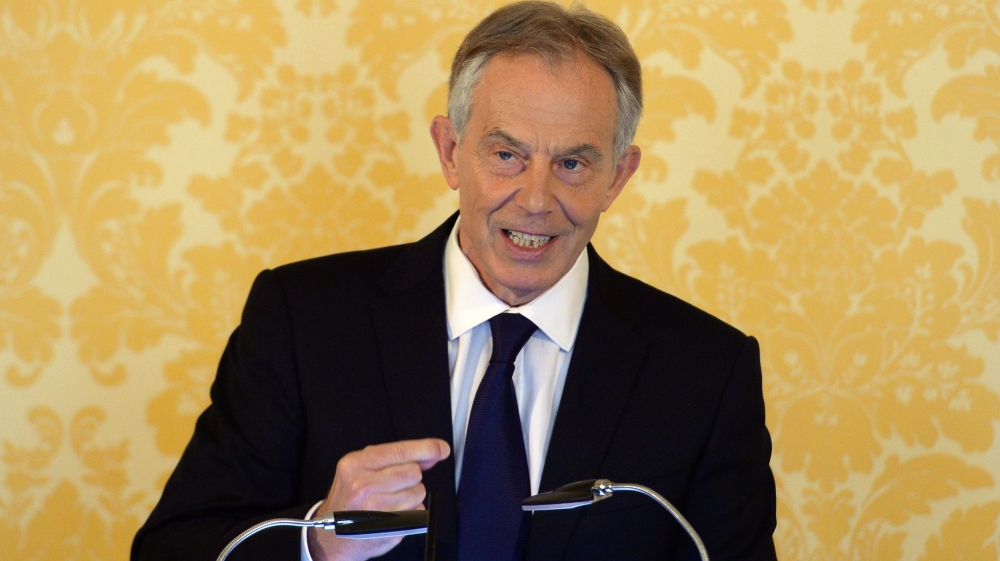Chilcot report: Iraq war based on ‘flawed intelligence’
by Jack Straw, July 07, 2016

Inquiry into Britain’s role finds the consequences of Tony Blair’s decision to invade Iraq in 2003 were underestimated.
Britain decided to join the 2003 invasion of Iraq based on “flawed
intelligence” which was not challenged and should have been, a
long-awaited report has found.
John Chilcot, the chairman of the Iraq Inquiry and a retired civil
servant, said on Wednesday that the invasion went “badly wrong”.
“Military action in Iraq might have been necessary at some point, but
in March 2003, there was no immediate threat from [then Iraq President]
Saddam Hussein,” he said, speaking 30 minutes before the report’s
offical publication.
The 2.6 million-word Iraq Inquiry, which took seven years to prepare, can be accessed in full online.
It said former prime minister Tony Blair committed to war before
peaceful options had been exhausted and that the legality of his case
was questionable.
Blair “set the UK on a path leading to diplomatic activity in the UN
and the possibility of participation in military action in a way that
would make it very difficult for the UK subsequently to withdraw its
support for the US,” the report concluded.
Al Jazeera’s Neave Barker, reporting from London, said: “[Chilcot’s
remarks were] about as damning as you can possibility get without
explicitly saying that war in Iraq was illegal.”
Responding to the report, Blair, the UK prime minister from 1997 to
2007, said his decision to join the invasion was taken “in good faith
and in what I believed to be the best interests of the country”.
In a news conference, Blair he said “accept[ed] full responsibility
without exception and without excuse”, but insisted that the world “is
in a better place without Saddam Hussein”.
He said he made the decision to go to war because “it was the right
thing to do based on the information I had”, adding that his mistake was
in the “planning and process” following the invasion.
‘Blair lied on every level’
Hundreds of thousands of Iraqis and at least 179 British soldiers were killed during the eight-year conflict.
Investigators also found the planning and preparations for Iraq after
Hussein was overthrown were wholly inadequate, said Chilcot, who had
not been asked to rule on the legality of the invasion.
“The people of Iraq have suffered greatly,” Chilcot said.
Speaking from Baghdad, Iraqi political analyst Ahmed Rushdi accused
Blair of lying “to the British people” and the “international
community”.
“He lied on every level,” Rushdi said. “In the end, what happened in
2003, [put] us in a position that Iraqis must take the blame of what
happened in 2003.”
Rushdi said that it was the responsibility of the “invaders” to consider the consequences of war.
“It’s only go to Iraq, invade Iraq, destroy the infrastructure,
destroy the nationality of all the Iraqis,” without a clear post-war
plan, he said.
As Chilcot addressed media at the Queen Elizabeth II Centre in west London, anti-war protesters gathered outside.
Before Britain entered the war 13 years ago, at least one million people had marched in the capital against a military invasion.
Current Prime Minister David Cameron, of the ruling Conservative
Party, said the government needed to learn the lessons from what went
wrong in the build-up to Britain’s joining the invasion of Iraq. He
added that he has put in place steps to avoid similar problems.
“Military intervention is always difficult, planning for the
aftermath of intervention, that is always difficult and I don’t think in
this House we should be naive in any way that there’s a perfect set of
plans … that can solve these problems in perpetuity.”
‘Never again’
The families of British troops killed in the Iraq conflict said
Britain should use the Chilcot report to ensure the country never made
such grave mistakes again.
In a statement, a group of families who had access to the report’s
executive summary said that “never again must so many mistakes be
allowed to sacrifice British lives and lead to the destruction of a
country for no positive end”.
The sister of one killed serviceman, Sarah O’Connor, said the report
confirmed there was one “terrorist” that the world needed to know about,
“and that is Tony Blair”.
The military families have long pushed for the inquiry and for those
responsible for Britain’s involvement to be held accountable.
The Iraq Inquiry had previously faced repeatedly delays, in part by
wrangling over the inclusion of classified material, including
conversations between Blair and former US President George W Bush. Some
of Blair’s pre-war letters to the US president are published in
Chilcot’s report, but not Bush’s replies.
The report was released as Iraq reeled from the deadliest attack since the 2003 invasion.
Early on Sunday, a suicide bomber detonated an explosives-rigged
lorry in Baghdad’s Karada district as it teemed with shoppers before the
holiday marking the end of the holy Muslim fasting month of Ramadan,
sparking infernos in nearby buildings.
At least 250 people died in the blast, including many children and women.
The bombing was claimed by the Islamic State of Iraq and the Levant (ISIL, also known as ISIS)
Source: Al Jazeera


